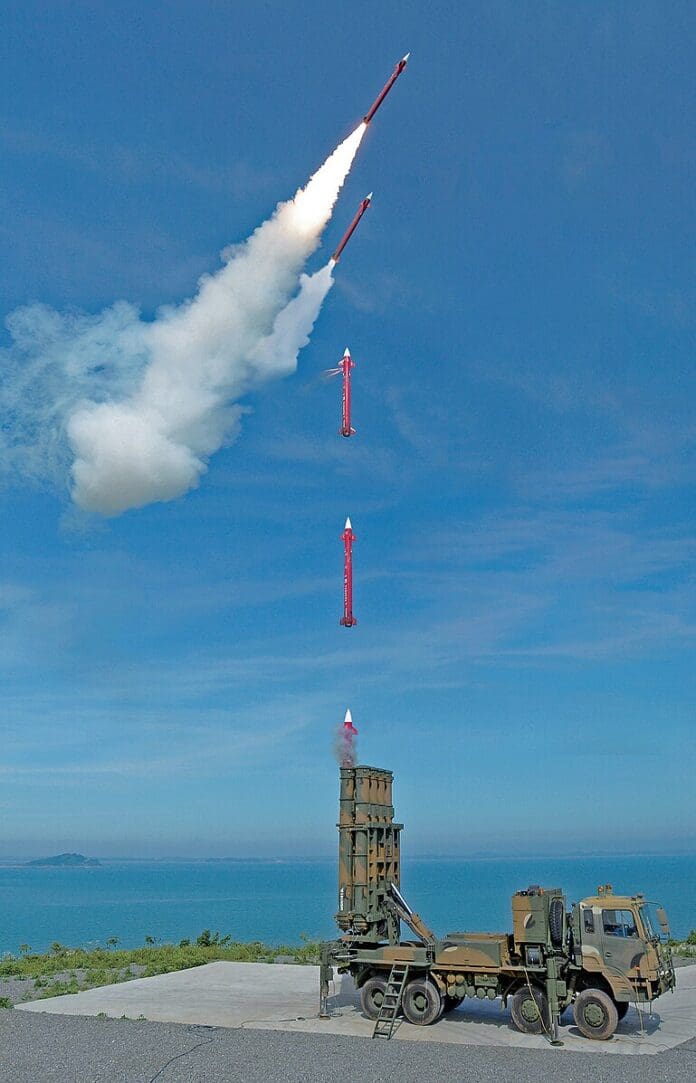This post is also available in:
 עברית (Hebrew)
עברית (Hebrew)
Iraq is working to significantly enhance its air defense capabilities by signing a 2.8-billion-dollar contract with South Korean defense firm LIG Nex1. This landmark deal, valued at 3.28 trillion Iraqi dinars, marks what the Ministry of Defense describes as a “qualitative strategic breakthrough” for the nation’s air defense infrastructure, aiming to cover the entirety of Iraqi airspace.
The missile system involved in this agreement is the Cheongung-II (M-SAM II), a mid-range surface-to-air missile designed to intercept various aerial threats, including enemy aircraft and ballistic missiles. With operational altitudes of up to 15 kilometers and a range of 40 kilometers, the Cheongung-II is equipped with advanced multifunction radar tracking and precision seeker technology, allowing it to engage multiple targets simultaneously.
LIG Nex1 will be responsible for the construction of the missile systems, while Hanwha Systems will provide the necessary radar equipment. Additionally, Hanwha Aerospace will manufacture the launchers and vehicles required for deployment.
With this deal, Iraq joins the United Arab Emirates and Saudi Arabia as the third nation to procure the Cheongung-II system, underscoring the growing interest in advanced missile defense solutions in the Middle East.
In the past year, Iranian-aligned militia groups in Iraq have shown support to the Hamas terror organization in its ongoing war with Israel, by carrying out multiple UAV and missile attacks from Iraq on Israel. Considering Israel’s recent bold escalation in Lebanon and strikes in Yemen, this acquisition could potentially have an impact on future Israeli strategy and extend Iraq’s ongoing tensions with Israel. As Iraq enhances its air defense, it could alter the strategic landscape in the region, potentially deterring Israeli air operations aimed at countering perceived threats from Iraqi groups.
As Iraq works to bolster its defense capabilities, the ramifications of this deal will likely resonate throughout the Middle East, influencing military dynamics and regional stability.


























